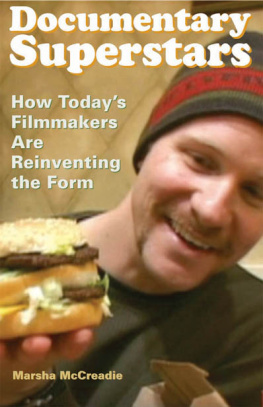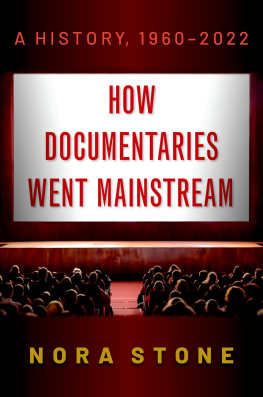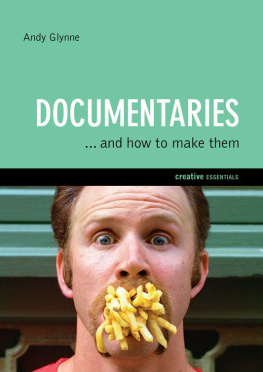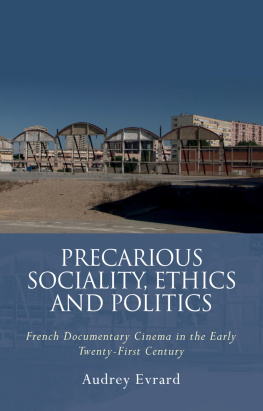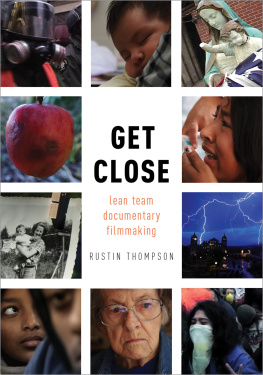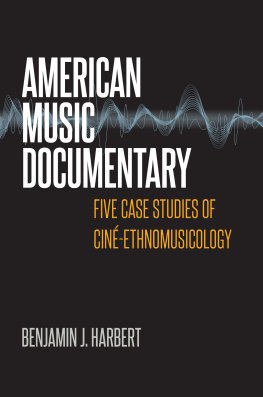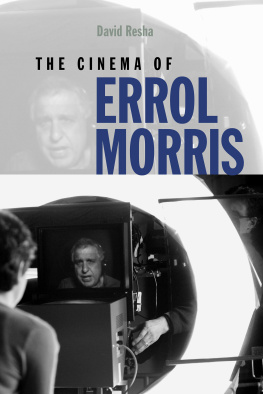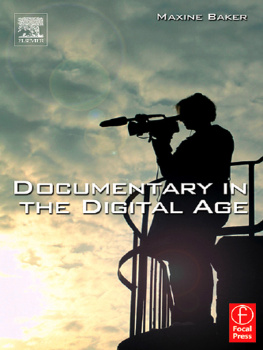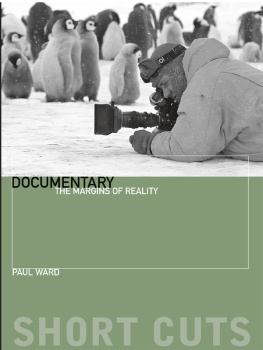ACKNOWLEDGMENTS

Thanks to the staff at Lincoln Centers Billy Rose Theatre Collection for, as ever, their unfailing and gracious efforts in researching materials. Much appreciation to my students in our documentary film class at Fordham Universitys Lincoln Center Campus in the fall of 2006. Especially Adam Benic for his unflagging intellectual curiosity, which pushed at me in a good way, and Casey Michael McGarry for his fascination with the spiritual impact of movie music, both qualities that can get lost along the way in the professional or academic practice of film criticism.
And so came the inspiration for this book and a new group of students of sortsreadersfor the ideas germinated in that class.
Also, appreciation to the Faculty Technology Center at Fordham University, especially Jay Savage and Rien Chy, who untied some of the knots I got tangled up in when computers and the new technology sometimes seemed an obstacle, not an aid. The Authors Guild provided a loan to help me complete the manuscript by relieving some financial anxieties. And thanks to Nicole Potter-Talling, an acquisitions editor who took a chance on a new angle on film studies.
I am grateful for the help of Professor Jeff Jaeckle, whose paper on spoof films, Allow Myself to Introduce Myself (an Austin Powers line), led to his uncommonly generous sharing of references for critical theory on the spoof subgenre. Professor Emeritus Jim Welsh always communicates support and has been unusually creative in looking at genre, and film, in pioneering ways. The enterprising Ruth Benedict of Syracuse Universitys Office of Development was the first to connect me with a master documentary filmmaker, Al Maysles, a graduate of Syracuse.
Of course, I am most indebted to those documentary filmmakers who gave me their time and thoughts; especially those who straightened me out on a number of misconceptions I had about their own work, and the documentary form as well. Those gentle, if occasionally pointed, instructors were Albert Maysles, Henry Corra, Aviva Slesin, Mark Wexler, to mention just a few.
And a brief disclaimer. It is bound to come up that I did not treat or interview D.A. Pennebaker, a major documentary filmmaker living in New York City. I have no reason to offer, just as I have no good answer to give to those who might complain that their favorite filmmaker has not been given space. This has already come up a few times socially, as in, You mean you didnt talk to X? She/he started the whole thing. On the plus side, to me this just shows how incredibly important the doc form has become to our time, when people have such passionate opinions about it.
May, 2008
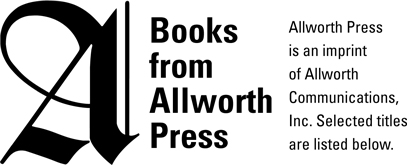
Documentary Filmmakers Speak
by Liz Stubbs (6 9, 240 pages, paperback, $19.95)
Get the Picture? The Movie Lovers Guide to Watching Films, Second Edition
by Jim Piper (6 9, 304 pages, 130 illustrations, paperback, $24.95)
Making Independent Films: Advice from the Filmmakers
by Liz Stubbs (6 9, 224 pages, 42 b&w illustrations, paperback, $16.95)
Making Short Films
by Jim Piper (7 3/4 9 3/8, 288 pages, 325 b&w illustrations, includes DVD, paperback, $24.95)
The Art of Motion Picture Editing
by Vincent LoBrutto (6 9, 240 pages, 50 b&w illustrations, paperback, $19.95)
Splatter Flicks: How to Make Low-Budget Horror Films
by Sara Caldwell (6 9, 224 pages, 22 b&w illustrations, paperback, $19.95)
Screenplay Story Analysis: The Art and Business
by Asher Garfinkel (5 1/2 8 1/2, 208 pages, paperback, $16.95)
The Perfect Screenplay: Writing It and Selling It
by Katherine Atwell Herbert (6 9, 224 pages, paperback, $16.95)
Jumpstart Your Awesome Film Production Company
by Sara Caldwell (6 9, 208 pages, paperback, $19.95)
Producing for Hollywood, Second Edition
by Paul Mason and Don Gold (6 9, 256 pages, paperback, $19.95)
Hollywood Dealmaking: Negotiating Talent Agreements
by Dina Appleton and Daniel Yankelevits (6 9, 256 pages, paperback, $19.95)
The Filmmakers Guide to Production Design
by Vincent LoBrutto (6 9, 240 pages, paperback, 15 b&w illustrations, $19.95)
To request a free catalog or order books by credit card, call 1-800-491-2808. To see our complete catalog on the World Wide Web, visit us at www.allworth.com .
SELECTED BIBLIOGRAPHY

Alexander, William. Film on the Left: American Documentary Film From 1931 to 1942. Princeton, N.J.: Princeton University Press, 1981.
Arthur, Paul. But Enough About You: First-Person Documentaries. Film Comment 42.4 (July/August 2006): 245.
. Essay Questions: From Alain Resnais to Michael Moore: Paul Arthur Gives a Crash Course in Nonfiction Cinemas Most Rapidly Evolving Genre. Film Comment 39.1 (January-February 2003): 5862.
Arthur, Paul and Janet Cutler. On the Rebound: Hoop Dreams and its Discontents. Cineaste 21.3 (1995).
Aufderheide, Patricia. The Camera as Conscience: How Social Issues Inspire Moving Documentaries. Chronicle of Higher Education 45.9 (Oct 23, 1998).
. Public Intimacy: The Development of First-person Documentary. Afterimage 25.1 (July-August, 1997): 1618.
Baker, Maxine. Documentary in the Digital Age. Burlington, MA: Focal Press, 2006.
Barnouw, Erik. Documentary: A History of the Non-Fiction Film, 2nd rev. ed. New York: Oxford University Press, 1993.
Barsam, Richard Meran. Nonfiction Film: A Critical History, Rev. and expanded. Bloomington: Indiana University Press, 1992.
, ed. Non-Fiction Film: Theory and Criticism. New York: Dutton, 1976.
Beattie, Keith. Documentary Screens: Non-Fiction Film and Television. New York: Palgrave Macmillan, 2004.
Birri, Fernando. The roots of documentary realism. Argentine Cinema, ed. Tim Barnard. Toronto: Nightwood Editions, 1986.
Bromley, Carl. While the Academy Slept: The strange career of the documentary Oscar. The Nation, 272.13 (April 2, 2001): 40.
Brownlow, Kevin. The War, The West and the Wilderness. New York: Knopf, 1979.
Brunner, Edward. Ersatz Truths: Variations on the Faux Documentary. Postmodern Culture: An Electronic Journal of Interdisciplinary Criticism 8.2 (January 1998).
Bruzzi, Stella. New Documentary: A Critical Introduction. London, New York: Routledge, 2006.
Bryant, Marsha. Auden and Documentary in the 1930s. Charlottesville: University Press of Virginia, 1997.
Carroll, Noel. Nonfiction Film and Postmodernist Skepticism. Post-Theory: Reconstructing Film Studies, eds. David Bordwell and Noel Carroll. Madison: University of Wisconsin Press, 1996.
Casebier, Allan. Idealist and Realist Theories of the Documentary. Post Script: Essays in Film and the Humanities 6.1 (Fall 1986): 6675.
Chris, Cynthia. Watching Wildlife. Minneapolis: University of Minnesota Press, 2006.
Corless, K. Documentaries: Thinking outside the box. [Includes an interview with Nick Broomfield].
Next page
